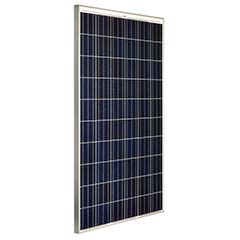Photovoltaic modules from aleo solar have once again demonstrated their excellent performance stability in an independent test. As part of its PV Durability Initiative (PVDI), the Fraunhofer Institute for Solar Energy Systems ISE put modules from eight manufacturers through an “endurance test”. The test went beyond the usual standards by simulating the kind of stresses that a solar module is likely to experience over its lifetime. At the end of the extensive tests series, the performance of the aleo module was stable: even after the toughest tests, losses remained in the single-digit percentage range. The aleo module also sailed through the electrical safety tests.
The PV Modules TestLab of the Fraunhofer ISE subjected the solar modules to severe mechanical stresses and extreme temperature fluctuations, combining several weeks of damp-heat testing with intense exposure to UV radiation. A climate chamber was used to check for susceptibility to potential induced degradation (PID). The testing programme had been designed to be as realistic as possible. In order to simulate the stresses caused by the wind in winter, the testers exposed the modules to constantly changing pressures of up to 2,600 pascals at minus 40 degrees Celsius. To simulate snow loads, several cycles of continuous pressure at 5,600 pascals were applied. In order to map normal operating conditions, the modules underwent 600 cycles of temperature changes, alternating between minus 40 and 85 degrees Celsius.
The PV Durability Initiative is a programme run jointly by the Fraunhofer Institute for Solar Energy Systems ISE and the Fraunhofer Center for Sustainable Energy Systems CSE. The modules tested were successively subjected to a variety of load sequences. The results indicate the likelihood of the modules performing reliably during their lifetime. A quantitative assessment of the durability of the modules tested is supplied to manufacturers participating in the PV Durability Initiative.The programme helps to improve not only the quality of the PV modules themselves but also the effectiveness of these reliability testing methods, which provide far more information than IEC certification. Fraunhofer ISE in Freiburg is Europe’s largest solar research institute. It has decades of experience in the development, testing and appraisal of photovoltaic technology.
“With its challenging PVDI test protocol, Fraunhofer ISE and Fraunhofer CSE have developed a new basis for assessing the service life of a solar module,” says Guenter Schulze, Chief Technical Officer of aleo solar AG. “The realistic endurance test provides operators of photovoltaic installations with the assurance that their aleo modules will continue to provide high energy yields for a long time to come. These favourable technical test results once again demonstrate the robustness and performance of our solar modules.” The laboratory tests at Fraunhofer ISE reinforce test results previously published on aleo modules: independent specialist contractor MBJ, for example, reported only minimal power losses after ten years in the field. In 2006, aleo modules received the best mark awarded by Stiftung Warentest on the basis of their good power production, durability and safety performance, and again in 2010 by Öko-Test, who awarded them the rating of “very good”.
—
The Company
aleo solar AG produces and distributes premium solar modules and systems for the international photovoltaic market. Since 2009, the Bosch Group has owned a majority of the company (DE000A0JM634), which was originally founded in 2001 and has been listed on the stock exchange since 2006. The premium manufacturer currently has approximately 900 employees and is represented in the key photovoltaic markets all over the world. The aleo solar group has an annual production capacity of 280 megawatts at its plant in Prenzlau, Germany. The company generated a turnover of € 279.9 million in 2012.



























